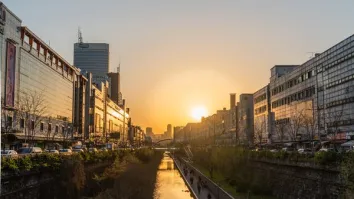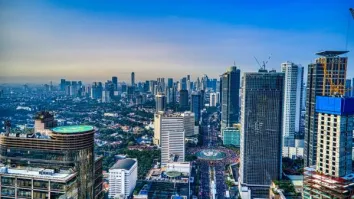
Singapore investment sales dragged down by nonexistent public sector transactions in Q1
Sales were down 6.2% to S$3.42 billion during the quarter.
As there were no transactions in the public sector, Savills reveals that total investment sales fell 6.2% QoQ to S$3.42 billion. This was a decline after two consecutive quarters of increase. Notwithstanding the fall, investment sales grew 18.8% YoY from the S$2.88 billion registered in Q1/2020. This is still considered encouraging as the market is deemed to be active amid the pandemic.
With Singapore advancing to Phase 3 of the reopening of the economy starting 28th December 2020, investment interest remains strong as investor confidence has taken a step up. The decline for the first quarter could be due more to potential sellers holding out hoping for better prices as the economy recovers. Nevertheless, the private sector remains active as private investment sales continued to grow for the fourth consecutive quarter, this time by 13.2% QoQ.
According to Savills, across the various sectors, despite the lack of GLS sites sold in the quarter, residential investment sales continued to constitute the largest proportion of total investment sales (49.1%). Investment sales in the commercial sector comprised 36.6% of total investment sales, 5.3 percentage points above the 31.3% recorded in Q4/2020. Industrial investment sales made up 13.5% of the total transaction value in the quarter.
Here’s more from Savills:
Owing to the lack of sales in the public sector (sales of GLS sites), residential investment sales fell 16.0% QoQ to S$1.68 billion in Q1/2021. Despite this, the sector had been active in the quarter with private sector transactions increasing for a third consecutive quarter by 22.0% QoQ from nearly S$1.38 billion in Q4/2020.
In the private sector, there were four residential sites that were sold in Q1/2021. These included two collective sales of 2, 4 and 6 Mount Emily Road as well as Surrey Point. Although there were still collective sales being transacted in the market, the lower transacted prices recorded showed that developers remained cautious. For the sale of 2, 4 and 6 Mount Emily Road, the sale and guide price of S$18 million (S$1,115 psf ppr) was lower than its initial guide price of S$24 million (S$1,485 psf ppr). Similarly, Surrey Point was transacted at a lower S$47.8 million (S$1,434 psf ppr, inclusive of development charge) versus a reserve price of S$55 million (S$1,661 psf ppr, inclusive of development charge).
In the reviewed quarter, there was the bulk purchase of all 20 units of ultra-luxury residential development Eden at 2 Draycott Park for S$293 million (S$4,827 psf). It was reported that the Tsai family from Taiwan’s snack food giant Want Want China Holdings is the buyer and the transaction was a combination of three purchases. While the unit selling price of S$4,827 psf was significantly lower than its initial asking price of S$6,000 psf, this was still higher than the recent high-end residential transactions.
Apart from that, the residential market (excluding sale of sites) was robust in Q1/2021 as well, with 73 transactions (each worth at least S$10 million), much higher than the 46 in Q4/2020. Out of which, 54 were for landed homes, whereby transaction activity for Good Class Bungalows (GCBs) was healthy. The strong demand for GCBs came at the back of ultra-high-net-worth individuals. In the quarter in review, a record price of S$4,005 psf on land area was achieved for the S$128.8 million sale of a GCB on Nassim Road. The buyer was Jin Xiao Qun, wife of the founder and executive chairman of Nanofilm Technologies International. With a larger group of buyers to include newly minted citizens, transaction volume of landed homes is expected to surpass that of last year.
COMMERCIAL
After two consecutive quarters of decline, in Q1/2021, investment sales in the commercial sector grew by 9.7% QoQ to S$1.25 billion. While investment sales in both office and retail sectors increased in the quarter, there was a larger quarterly growth for office investment sales, rising 14.7% from S$740.7 million in Q4/2020 to S$849.8 million in Q1/2021. This largely came from the divestment of a 50% stake in OUE Bayfront by OUE Commercial Reit to National Pension Service of Korea and the Allianz group of companies for S$633.8 million (S$3,170 psf based on net lettable area (NLA)), which was also the largest deal in the quarter.
Investment sales in the retail sector also grew in Q1/2021, albeit a much slower pace of 0.3% QoQ, to S$403.9 million. Demand for shophouses remained strong due to its scarcity and strong capital preservation across economic downturns. 10 shophouses were transacted with a total investment value of S$163.2 million. Although this was 37.2% lower than the S$259.8 million in Q4/2020, this amount more than doubled from the S$69.2 million in the same period a year ago.
Separately, there was a block transaction of YewTee Point for S$220 million (S$2,986 psf based on NLA) to an undisclosed buyer. The seller was Frasers Centrepoint Trust and this came just after they sold off Anchorpoint in Q4/2020. The recent transactions of suburban malls exhibited the resilience of these malls with their strong footfall levels and large catchment population derived from the housing estates in the vicinity. The WFH movement has helped as it kept population density levels high in the surrounding areas during working hours. It is anticipated that although the COVID situation appears to be largely contained, footfall and sales of suburban malls are still expected to be strong, as these malls can provide similar goods and services as that of malls in the prime areas.
INDUSTRIAL
On the other hand, industrial investment sales declined for the second consecutive quarter by 8.5% QoQ to S$462 million in Q1/2021. Although there were slightly more transactions in Q1, the transaction values for each deal were generally lower. In the quarter, two investment deals surpassed the S$100 million mark with the largest deal amounting to S$118 million. In Q4/2020, there were three transactions that were above S$100 million in Q4/2020 and the largest transaction in that quarter came up to S$175.8 million.
The significant deals in Q1/2021 included the sale of BreadTalk IHQ for S$118 million by BreadTalk Group to a consortium led by Lian Beng Group, as well as AIMS APAC REIT’s purchase of Sime Darby Business Centre for S$102 million. Both transactions involve certain forms of leaseback conditions. For BreadTalk IHQ, the vendor BreadTalk Group will take up space at the building as an anchor tenant for the first 10 years and have the option to extend the lease by five more years or purchase the property. In a similar light, Sime Darby Business Centre, which is currently let out to Sime Darby Property Singapore, will continue to be leased by Sime Darby Property Singapore (70% of the total gross floor area (GFA)) for 10 years with fixed annual rental increment and a four-year lease renewal option at the prevailing market rate.
OUTLOOK
With the local COVID-19 situation largely under control, for economic growth to continue, external demand has to maintain its growth trajectory and our borders have to reopen. As vaccination programs are being rolled out worldwide, population immunity for advanced economies is anticipated in the near term, which is expected to accelerate the route to economic recovery.
Across the various property types, demand for shophouses and landed homes is forecast to remain resilient due to their scarcity and thus their ability to preserve investment value. Amid the high liquidity and a low interest rate environment, yields have been less critical in the decision making process. In the residential sector, as the number of GLS sites on offer remain limited, and along with diminishing unsold inventory, developers may be keen on acquiring new sites for development. Hence, this is expected to induce more collective sales in 2H/2021. Nevertheless, as COVID remains in the environment, developers may not wish to take on too much risk and sites with more palatable price lump sums and lot sizes may have a higher likelihood of selling.
Interest is also expected to pick up in the office sector as sentiment has improved with workers gradually returning to offices and borders are also anticipated to open more given that more people globally have been getting vaccinated. From 5th April, up to 75% of staff can return to the workplace at any one time, an increase from the previous 50%. Splitteam arrangements are also no longer mandatory and restrictions on employees required to WFH for at least half of the working time are lifted.
With improved clarity on the path to economic recovery and better prospects for the abovementioned segments in the real estate market, it is expected that investment sales in Singapore will rebound this year.



















 Advertise
Advertise





